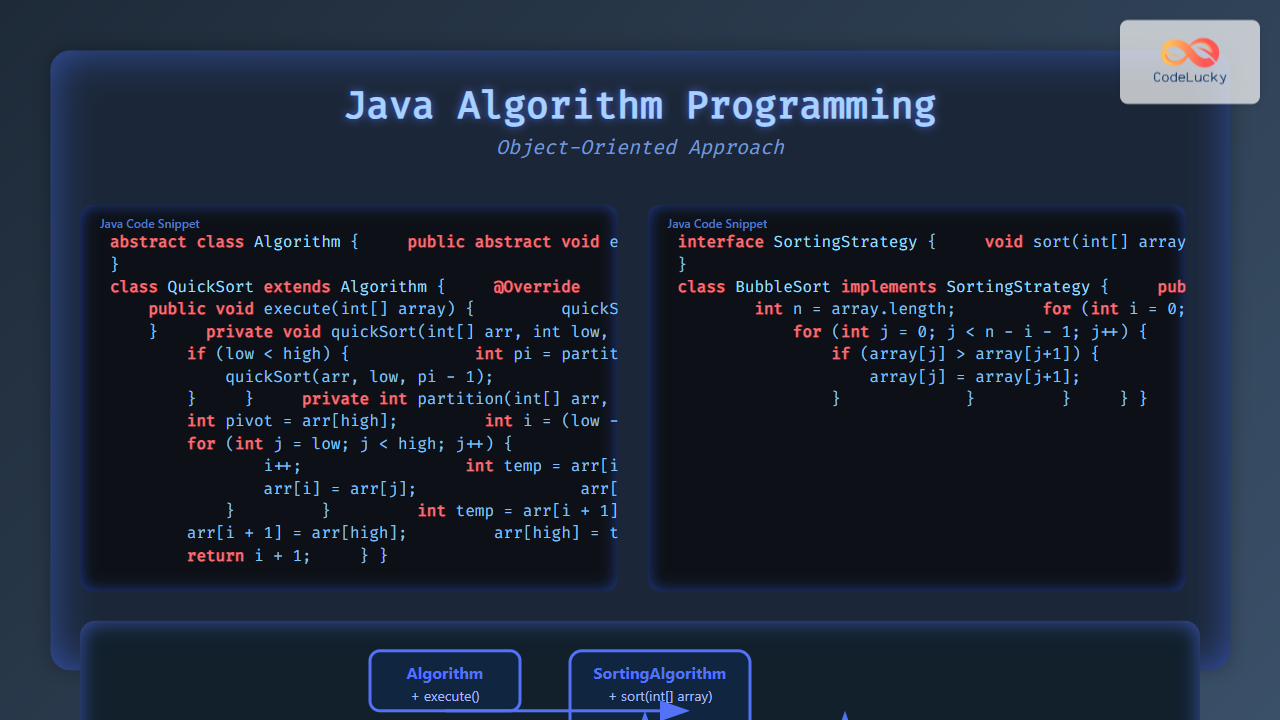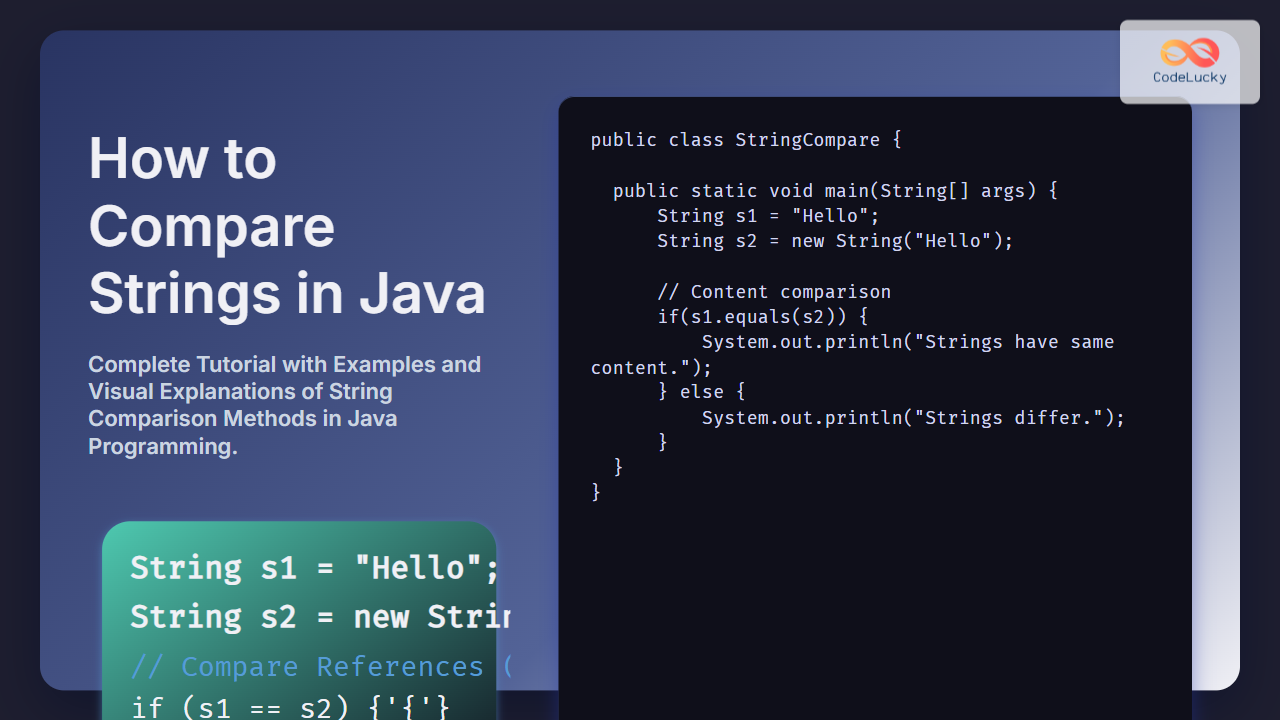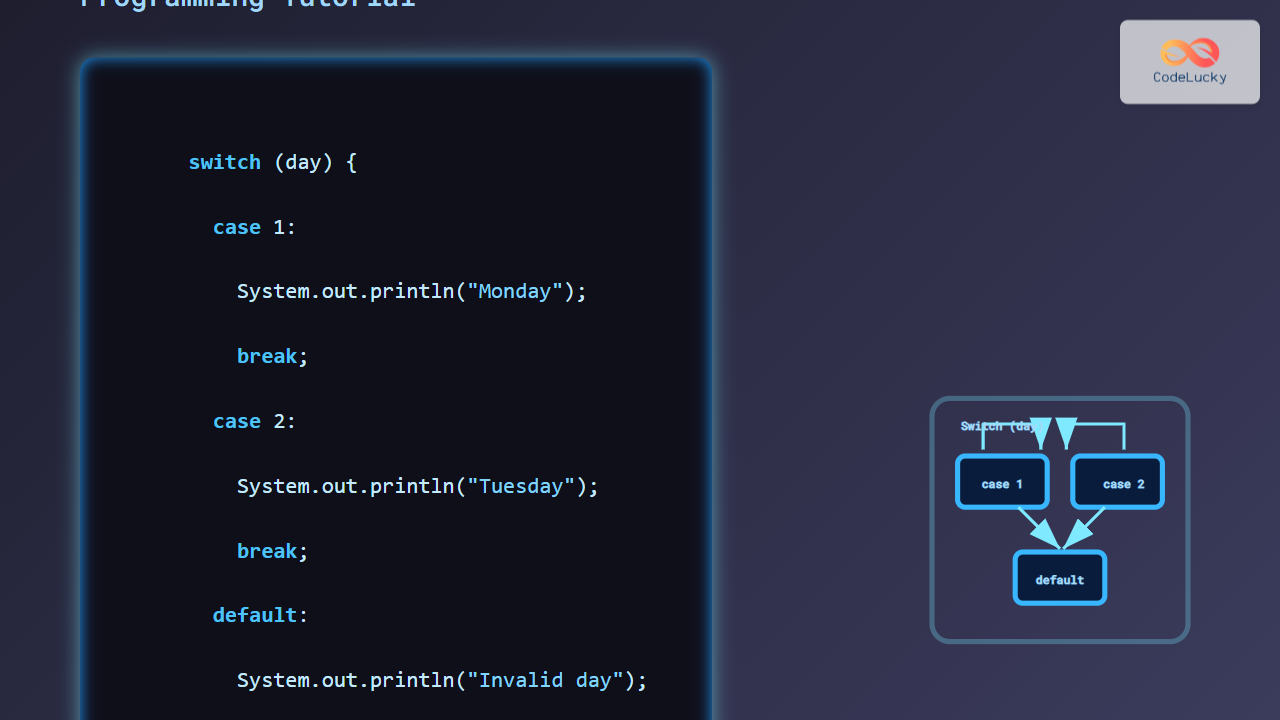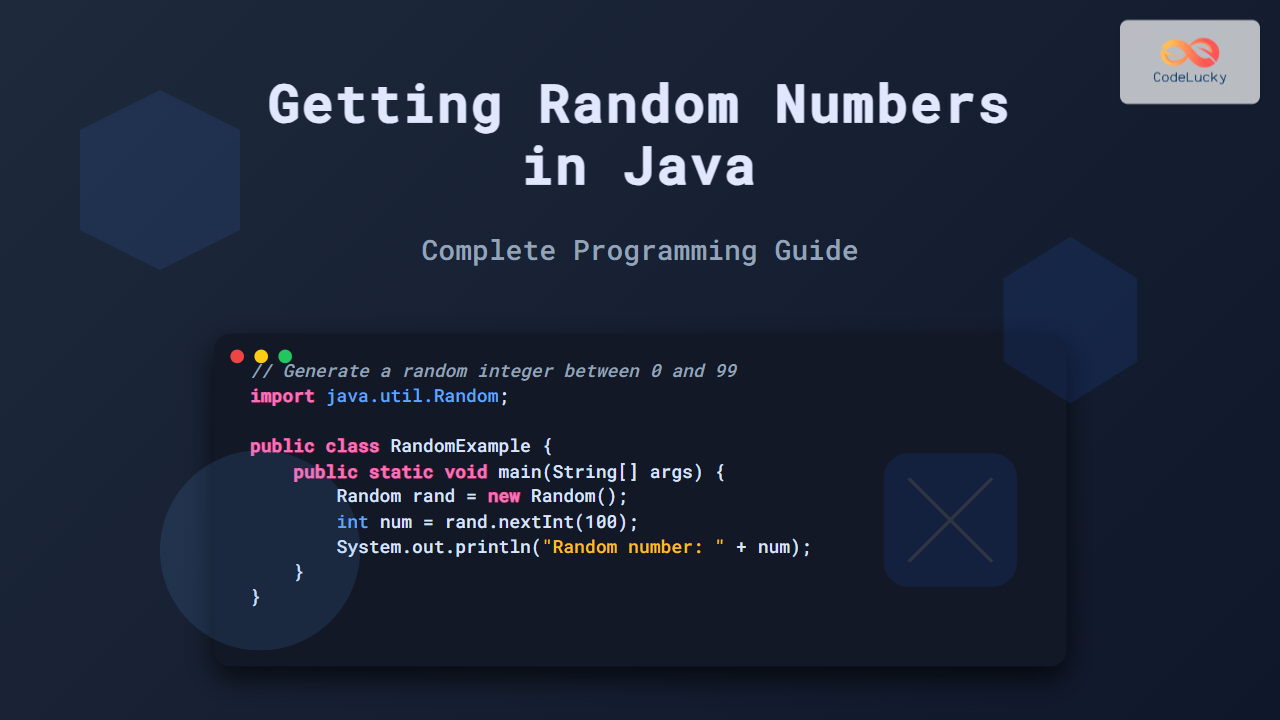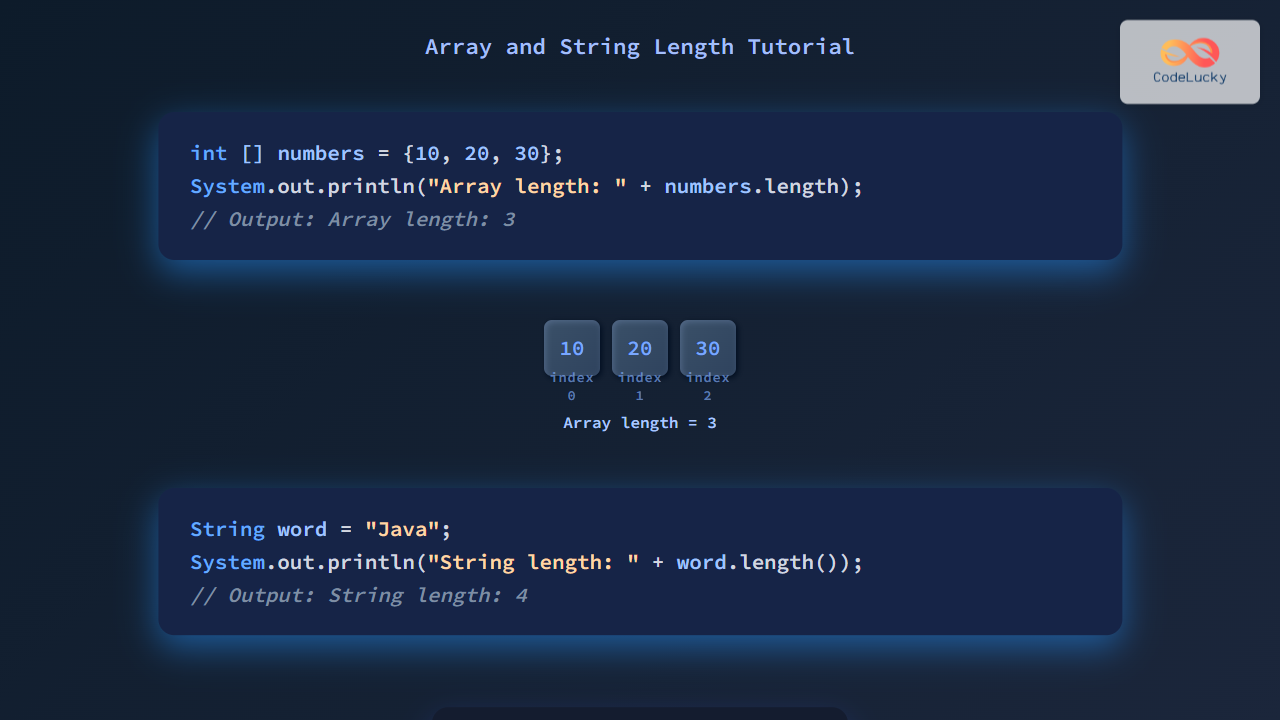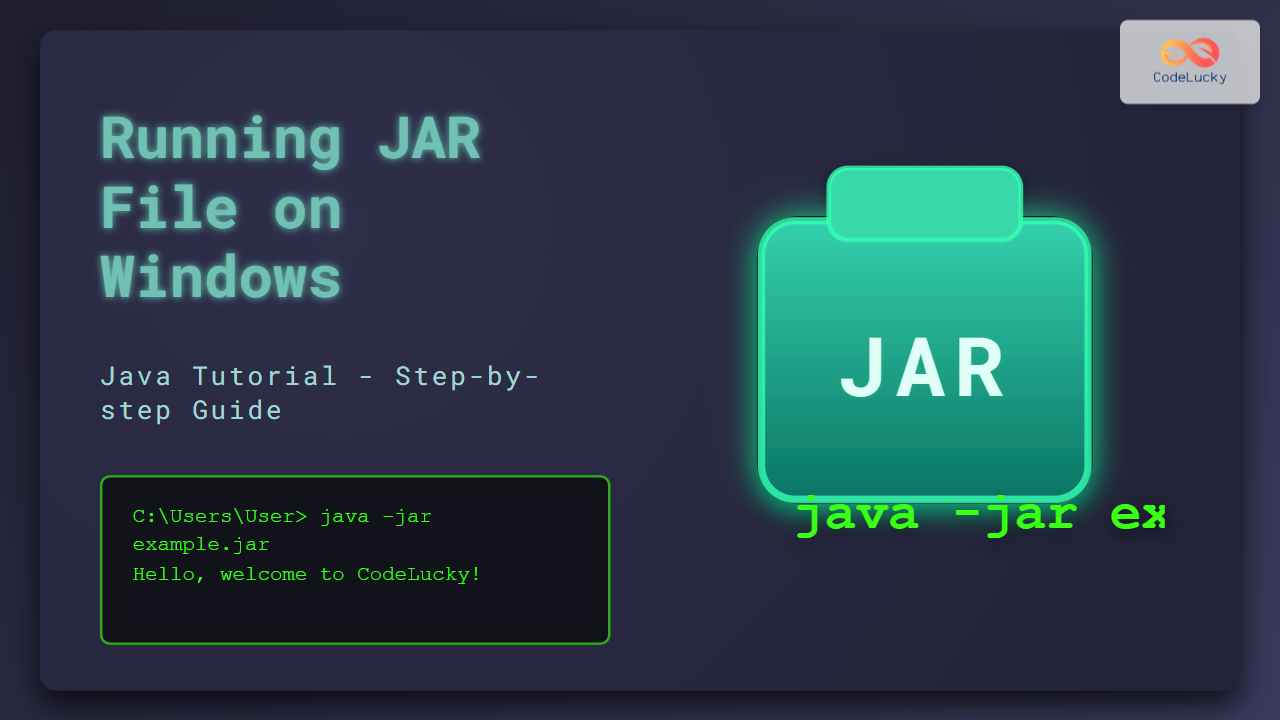Java, as an object-oriented programming language, offers a powerful feature called method overloading. This concept allows developers to create multiple methods with the same name within a class, enhancing code readability and flexibility. In this comprehensive guide, we'll dive deep into method overloading, exploring its intricacies, benefits, and best practices.
Understanding Method Overloading
Method overloading is a feature that enables a class to have multiple methods with the same name, but different parameters. This technique is part of Java's polymorphism, allowing methods to exhibit different behaviors based on the input provided.
🔑 Key Point: The compiler distinguishes overloaded methods by their method signatures, which include the method name and the number, type, and order of parameters.
Let's start with a simple example to illustrate this concept:
public class Calculator {
public int add(int a, int b) {
return a + b;
}
public double add(double a, double b) {
return a + b;
}
public int add(int a, int b, int c) {
return a + b + c;
}
}
In this Calculator class, we've overloaded the add method three times. Each method has the same name but different parameter lists.
Rules for Method Overloading
To successfully implement method overloading, you need to follow these essential rules:
- Method Name: All overloaded methods must have the same name.
- Parameter List: The parameter list must be different for each overloaded method. This can be achieved by:
- Changing the number of parameters
- Changing the data types of parameters
- Changing the order of parameters (if they are of different types)
- Return Type: The return type can be different, but it alone is not sufficient for method overloading.
🚫 Common Mistake: Changing only the return type is not considered method overloading and will result in a compilation error.
Benefits of Method Overloading
Method overloading offers several advantages:
- Improved Readability: Using the same method name for related operations makes the code more intuitive and easier to understand.
- Reduced Complexity: It eliminates the need for remembering multiple method names for similar operations.
- Flexibility: Developers can implement the same operation for different data types or number of parameters without creating entirely new methods.
- Code Reusability: Overloaded methods can call each other, promoting code reuse and reducing redundancy.
Types of Method Overloading
Let's explore different ways to overload methods with examples:
1. Changing the Number of Parameters
public class StringUtil {
public String concatenate(String s1, String s2) {
return s1 + s2;
}
public String concatenate(String s1, String s2, String s3) {
return s1 + s2 + s3;
}
}
In this example, we've overloaded the concatenate method to handle both two and three string parameters.
2. Changing Parameter Types
public class MathOperations {
public int multiply(int a, int b) {
return a * b;
}
public double multiply(double a, double b) {
return a * b;
}
}
Here, the multiply method is overloaded to handle both integer and double multiplication.
3. Changing Parameter Order
public class Printer {
public void print(String text, int copies) {
for (int i = 0; i < copies; i++) {
System.out.println(text);
}
}
public void print(int copies, String text) {
for (int i = 0; i < copies; i++) {
System.out.println(text);
}
}
}
In this case, we've overloaded the print method by changing the order of parameters.
Method Overloading and Type Promotion
Java performs automatic type promotion when matching method calls to method definitions. This can sometimes lead to unexpected behavior if not properly understood.
Consider this example:
public class TypePromotion {
public void display(int num) {
System.out.println("Displaying int: " + num);
}
public void display(long num) {
System.out.println("Displaying long: " + num);
}
public static void main(String[] args) {
TypePromotion tp = new TypePromotion();
tp.display(5); // Calls display(int)
tp.display(5L); // Calls display(long)
}
}
🔍 Note: When an exact match is not found, Java will promote the argument to the next larger data type and try to match again.
Overloading with Varargs
Java's varargs (variable-length arguments) feature can also be used in method overloading. Here's an example:
public class VarargsOverloading {
public void printNumbers(int... numbers) {
for (int num : numbers) {
System.out.print(num + " ");
}
System.out.println();
}
public void printNumbers(double... numbers) {
for (double num : numbers) {
System.out.print(num + " ");
}
System.out.println();
}
public static void main(String[] args) {
VarargsOverloading vo = new VarargsOverloading();
vo.printNumbers(1, 2, 3); // Calls printNumbers(int...)
vo.printNumbers(1.5, 2.5, 3.5); // Calls printNumbers(double...)
}
}
⚠️ Warning: Be cautious when overloading methods with varargs, as it can sometimes lead to ambiguity.
Method Overloading vs. Method Overriding
It's crucial to understand the difference between method overloading and method overriding:
- Method Overloading: Multiple methods in the same class with the same name but different parameters.
- Method Overriding: Redefining a method in a subclass that is already defined in the superclass, with the same name and parameters.
Here's a quick example to illustrate the difference:
class Animal {
public void makeSound() {
System.out.println("Animal makes a sound");
}
}
class Dog extends Animal {
// Method Overriding
@Override
public void makeSound() {
System.out.println("Dog barks");
}
// Method Overloading
public void makeSound(String mood) {
if (mood.equals("happy")) {
System.out.println("Dog wags tail and barks");
} else {
System.out.println("Dog growls");
}
}
}
Best Practices for Method Overloading
To effectively use method overloading, consider these best practices:
- Consistent Behavior: Ensure that overloaded methods perform conceptually similar operations.
- Clear Naming: Use method names that clearly indicate the operation being performed.
- Avoid Ambiguity: Be cautious with type promotions and varargs to prevent ambiguous method calls.
- Documentation: Clearly document the purpose and behavior of each overloaded method.
- Limit Overloading: Don't overload methods excessively. If you find yourself creating many overloaded versions, consider using a different design pattern.
Common Pitfalls in Method Overloading
While method overloading is powerful, it's important to be aware of potential pitfalls:
1. Ambiguous Overloading
public class AmbiguousOverload {
public void process(int a, long b) {
System.out.println("Method 1");
}
public void process(long a, int b) {
System.out.println("Method 2");
}
public static void main(String[] args) {
AmbiguousOverload ao = new AmbiguousOverload();
ao.process(1, 1); // Compilation error: ambiguous method call
}
}
This code will not compile due to ambiguity. The compiler cannot determine which method to call.
2. Overloading and Null Arguments
Be cautious when overloading methods that can accept null arguments:
public class NullArgument {
public void print(Object obj) {
System.out.println("Printing object");
}
public void print(String str) {
System.out.println("Printing string");
}
public static void main(String[] args) {
NullArgument na = new NullArgument();
na.print(null); // Calls print(String) due to more specific type
}
}
In this case, print(String) is called because String is more specific than Object.
Real-World Applications of Method Overloading
Method overloading is widely used in real-world applications. Here are some practical examples:
1. Database Operations
public class DatabaseManager {
public void insert(String tableName, String[] columns, Object[] values) {
// Insert operation with column names and values
}
public void insert(String tableName, Map<String, Object> columnValueMap) {
// Insert operation with a map of column names and values
}
public void update(String tableName, String condition, String[] columns, Object[] values) {
// Update operation with specific columns
}
public void update(String tableName, String condition, Map<String, Object> columnValueMap) {
// Update operation with a map of column names and values
}
}
This DatabaseManager class demonstrates how method overloading can provide flexible ways to perform database operations.
2. GUI Component Creation
public class ButtonFactory {
public JButton createButton(String text) {
return new JButton(text);
}
public JButton createButton(String text, Icon icon) {
return new JButton(text, icon);
}
public JButton createButton(String text, ActionListener listener) {
JButton button = new JButton(text);
button.addActionListener(listener);
return button;
}
public JButton createButton(String text, Icon icon, ActionListener listener) {
JButton button = new JButton(text, icon);
button.addActionListener(listener);
return button;
}
}
This ButtonFactory class shows how method overloading can be used to create GUI components with different configurations.
Conclusion
Method overloading is a powerful feature in Java that enhances code readability, flexibility, and reusability. By allowing multiple methods with the same name but different parameter lists, it provides a clean way to implement similar operations for different data types or numbers of arguments.
Remember to use method overloading judiciously, keeping in mind the best practices and potential pitfalls we've discussed. When used correctly, method overloading can significantly improve your code's structure and maintainability.
As you continue to develop your Java programming skills, mastering method overloading will be crucial in writing more efficient and elegant code. Practice creating overloaded methods in your projects, and you'll soon find yourself naturally implementing this powerful feature in your Java applications.
- Understanding Method Overloading
- Rules for Method Overloading
- Benefits of Method Overloading
- Types of Method Overloading
- Method Overloading and Type Promotion
- Overloading with Varargs
- Method Overloading vs. Method Overriding
- Best Practices for Method Overloading
- Common Pitfalls in Method Overloading
- Real-World Applications of Method Overloading
- Conclusion













